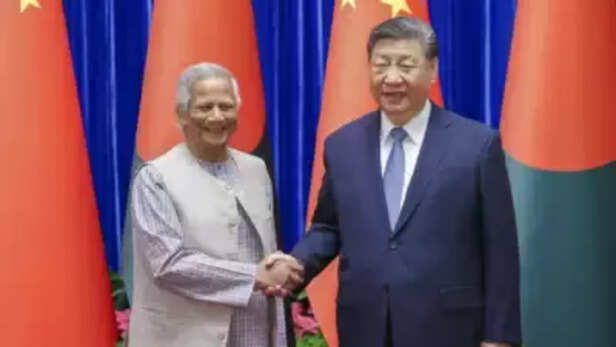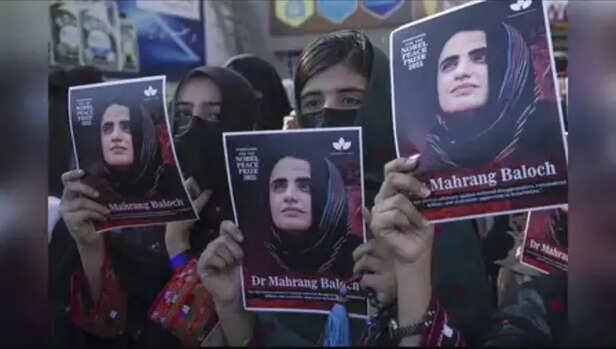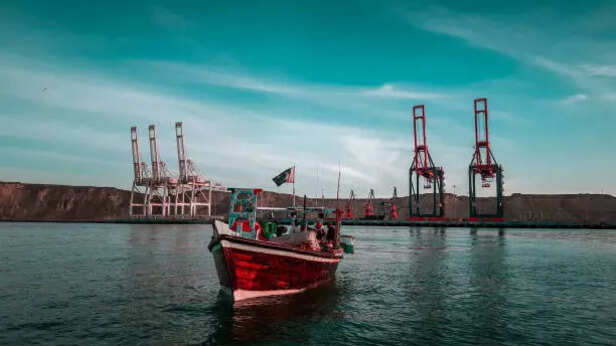India Should Support BLA—But Keeping in Mind That Balochistan Should Not Become Another Bangladesh
Ankit Gupta | May 16, 2025, 20:35 IST

India can and perhaps should support the Baloch cause as part of a broader doctrine of strategic assertiveness and human rights advocacy. But it must ensure that such support doesn’t backfire into creating another Bangladesh-style situation—where a newly liberated region becomes a diplomatic liability or a strategic vacuum.
In 1971, India changed the course of South Asian history. By supporting the liberation of East Pakistan, we gave birth to Bangladesh — a strategic and moral victory that still resonates. But five decades later, it is worth asking: has Bangladesh truly honored that sacrifice? Has it stood with India in return, or merely used India’s support to pursue its own, often conflicting, geopolitical interests?
Today, India is being presented with another historic moment — the growing call for independence in Balochistan. The province remains under brutal occupation by the Pakistani state, enduring daily repression, enforced disappearances, and denial of basic human rights. As the cry for freedom echoes louder, India must decide: will it support the just aspirations of the Baloch people?
The answer should be yes — but with wisdom, conditions, and strategic foresight. We must not repeat the emotional miscalculations of 1971. Balochistan cannot become another Bangladesh.

India’s support for Bangladesh was born out of a noble impulse: to stop genocide, provide refuge, and break Pakistan’s military back. We succeeded — but what did we gain in return?
Today, Dhaka cultivates deep ties with Beijing, signs deals with Turkey, and remains hesitant to openly acknowledge India's decisive role in its liberation. Anti-India rhetoric flourishes among political and social groups in Bangladesh. Radical Islamist networks remain active, and their ideological hostility increasingly mirrors the very forces that once ravaged East Pakistan.
From border tensions to illegal immigration, from cultural appropriation to diplomatic backstabbing, Bangladesh often acts not as an ally, but as a transactional actor. Many Indians now privately admit: India paid the cost of liberation, but received no loyalty in return.

The Baloch people are not opportunists. They are not born from a failed two-nation theory. In fact, they never accepted Pakistan to begin with.
At Partition, the princely state of Kalat — which encompassed most of Balochistan — sought independence. But in 1948, the Pakistani army forcibly annexed it, violating the spirit of decolonization. Ever since, Balochistan has remained a colony in all but name.
Unlike the East Pakistani movement, which carried religious undertones and later spiraled into jihadist politics, the Baloch struggle is secular, nationalist, and democratic in aspiration. Baloch nationalists seek cultural survival, autonomy, and dignity, not a religious war.
The Baloch have fought five major uprisings against the Pakistani state. Their commitment has not wavered. They don’t demand India's intervention—they demand the world’s attention. And they have paid in blood, year after year.

By supporting Balochistan’s self-determination, India can flip Pakistan’s Kashmir narrative on its head. Islamabad has long portrayed itself as a champion of freedom in Kashmir, but brutally silences any such sentiment within its own borders.
Balochistan is the clearest example of Pakistan’s internal colonialism — a fact the world must be reminded of.
China’s Belt and Road Initiative hinges on the China-Pakistan Economic Corridor (CPEC), which runs through Balochistan. If Balochistan gains autonomy or independence, it would deal a crippling blow to China’s maritime ambitions and Pakistan’s economic fantasies.
A free or autonomous Balochistan — if friendly to India — would surround Pakistan with two discontented frontiers: Afghanistan in the northwest and Balochistan in the southwest. It would permanently weaken Pakistan’s military overreach, especially in Kashmir and the broader region.
History is a strict teacher. It offers no leniency for repeated mistakes.
India must tie support with expectations — a clear commitment to democracy, secularism, and strategic alignment. There must be no room for religious radicalization or opportunistic foreign meddling in a post-Pakistan Balochistan.
Support for Balochistan should come not just from outrage, but from cold strategic calculation. This is not charity — it is geopolitical chess.
India must avoid prematurely recognizing a breakaway Baloch entity without a clear transitional roadmap, credible leadership, and international consultation. Balochistan must not become a chaotic no-man’s-land.
The creation of Pakistan came through blood, betrayal, and division. From Kashmir to Balochistan, its borders were drawn with arrogance and held with iron fists. The people of Balochistan were never given a voice.
Supporting Balochistan now is not revenge — it is realignment. A chance for the region to reclaim its denied history.
India has the opportunity to stand up — not just against Pakistan, but for the people of Balochistan. But we must do so with foresight, not euphoria. With principles, not platitudes.
Balochistan deserves freedom. But India deserves a true ally in return — not another difficult neighbour born of good intentions and poor planning.
Today, India is being presented with another historic moment — the growing call for independence in Balochistan. The province remains under brutal occupation by the Pakistani state, enduring daily repression, enforced disappearances, and denial of basic human rights. As the cry for freedom echoes louder, India must decide: will it support the just aspirations of the Baloch people?
The answer should be yes — but with wisdom, conditions, and strategic foresight. We must not repeat the emotional miscalculations of 1971. Balochistan cannot become another Bangladesh.
Bangladesh: A Strategic Blunder in Hindsight?

Hypocrisy of the Misguided Neighbour
India’s support for Bangladesh was born out of a noble impulse: to stop genocide, provide refuge, and break Pakistan’s military back. We succeeded — but what did we gain in return?
Today, Dhaka cultivates deep ties with Beijing, signs deals with Turkey, and remains hesitant to openly acknowledge India's decisive role in its liberation. Anti-India rhetoric flourishes among political and social groups in Bangladesh. Radical Islamist networks remain active, and their ideological hostility increasingly mirrors the very forces that once ravaged East Pakistan.
From border tensions to illegal immigration, from cultural appropriation to diplomatic backstabbing, Bangladesh often acts not as an ally, but as a transactional actor. Many Indians now privately admit: India paid the cost of liberation, but received no loyalty in return.
Balochistan: A Fundamentally Different Struggle

Mahrang Baloch
The Baloch people are not opportunists. They are not born from a failed two-nation theory. In fact, they never accepted Pakistan to begin with.
At Partition, the princely state of Kalat — which encompassed most of Balochistan — sought independence. But in 1948, the Pakistani army forcibly annexed it, violating the spirit of decolonization. Ever since, Balochistan has remained a colony in all but name.
Unlike the East Pakistani movement, which carried religious undertones and later spiraled into jihadist politics, the Baloch struggle is secular, nationalist, and democratic in aspiration. Baloch nationalists seek cultural survival, autonomy, and dignity, not a religious war.
The Baloch have fought five major uprisings against the Pakistani state. Their commitment has not wavered. They don’t demand India's intervention—they demand the world’s attention. And they have paid in blood, year after year.
Why Should India Support Balochistan?

China's multi-billion China-Pakistan Economic Corridor
1. Expose Pakistan’s Hypocrisy on Kashmir
Balochistan is the clearest example of Pakistan’s internal colonialism — a fact the world must be reminded of.
2. Strategic Disruption of CPEC
3. Recalibrating South Asia’s Power Equation
What India Must Avoid: The Second Bangladesh Trap
India must tie support with expectations — a clear commitment to democracy, secularism, and strategic alignment. There must be no room for religious radicalization or opportunistic foreign meddling in a post-Pakistan Balochistan.
Support for Balochistan should come not just from outrage, but from cold strategic calculation. This is not charity — it is geopolitical chess.
India must avoid prematurely recognizing a breakaway Baloch entity without a clear transitional roadmap, credible leadership, and international consultation. Balochistan must not become a chaotic no-man’s-land.
This Is Not Revenge — It’s Historical Correction
Supporting Balochistan now is not revenge — it is realignment. A chance for the region to reclaim its denied history.
Justice Must Be Strategic
Balochistan deserves freedom. But India deserves a true ally in return — not another difficult neighbour born of good intentions and poor planning.
